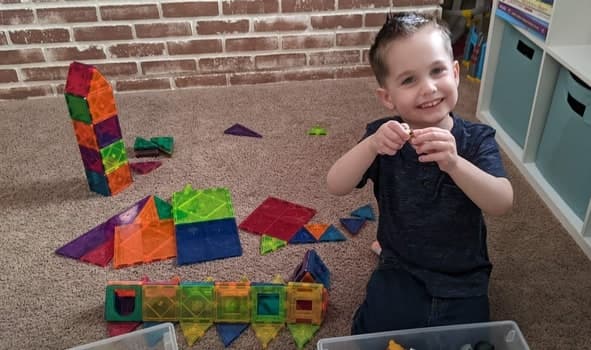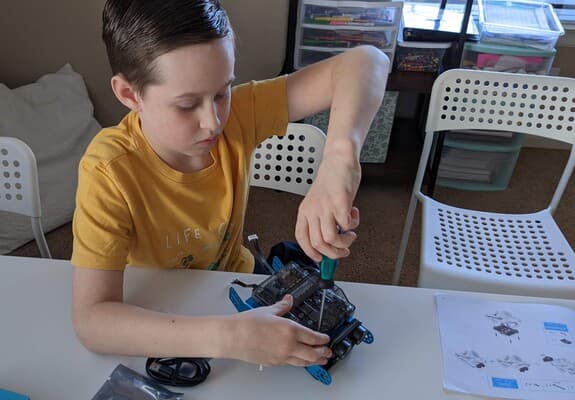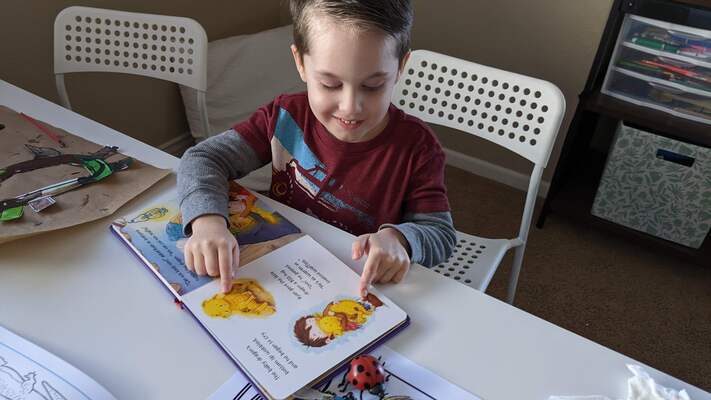I always like to say there are guides, but no manuals when it comes to raising your children.
There are things like parenting books, workshops, and advice (solicited or unsolicited) from loved ones. There aren’t hard and fast rules though, and even these guides can’t predict your child and what their needs are.
With that being said, through a little bit of experience with my own kids, I’ve come to experiment with a few things that help. While it’s not always easy, it is important to remind yourself that we are all out here doing the best that we can as parents. So, I hope you can take a few of these tips and find ways to apply them to your own relationship with your children.
In this guide to raising confident children, we’ll go over the best tips and approach you should take.
Table of Contents
Problem Solve With Your Children

Kids face problems all the time, especially early on when they are learning SO MUCH.
They also like to test the limits with their newfound sense of choice and autonomy.
This might look like pulling every box of cereal off the shelf at the grocery store because they say they need them. It might look like your child pushing away their Magna Tiles out of frustration because their structure keeps falling.
Whatever it is that they face, they often look to the adults around them for their response or guidance. Stay with them in these moments and name what is happening. Use open-ended questions starting with who, what, when, where, and why.
For example, you might say, “I notice you might be frustrated because your structure keeps falling. I know how tough that can be. You must really want it to stay upright! What pieces do you think are missing, and where?” Rather than a response like, “Oh, don’t be so frustrated…” First, validate, then offer support to find a solution.
The message conveys that moments like this happen. That they are not wrong for having these feelings and that they just have to keep trying to find the right solution. I like to think of it as coaching rather than teaching.
We are not telling our children what to do but coaching them through it.
Give Your Kids Choice
Imagine being in a little body and starting to notice the world around you, and that you have a voice. It might feel exciting, overwhelming, and powerful all at the same time. Kids need to be supported in who they are becoming, rather than who we want them to be.
The more we give them choices, the more sure of themselves they become. Sometimes this can feel like a tricky balance, when we also want to keep our kids safe.
Find a creative, age-appropriate way to offer that to them.
Simple things like letting them pick out their outfit, their bedtime book, or what they want to give their friend for their birthday goes a long way. Also, find ways to include them in family decisions, like which Christmas tree to pick out or what to eat for dinner for the week.
Allow Your Kids to Fail

As Albert Einstein once said, “a person who never made a mistake never tried anything new.”
This might feel scary for some parents, and that is okay. It’s something my Husband and I struggled with when we had our firstborn.
We always want what is best for our children, and it can be difficult to see them hurting. Try to remind yourself of your own trials and tribulations. Think about how much you have learned and grown from them.
Let them try things on their own early on.
Even if it is clear, they may not have the skills to fully grasp it. You always have to start somewhere when learning a new skill. From fitting puzzle pieces together to putting on their coat. Give them the chance to regulate their frustration, slow down, and keep trying.
Failure is a part of life.
The more we try to shelter our children from that, the more difficult it may be for them to face it later on. Allowing might look a lot like managing our own anxieties and feelings when we see our children struggle. The best thing you can do is be there for them when they do.
…and Reassure Them When They Do
When you see the disappointment on their face when something they are trying to figure out is not working. Try offering some validation and support. What does that look like?
- “I understand this is frustrating. You are so capable though; how can I help you?”
- “I know this is so hard, and I see you are still trying!”
- “Look at you doing your best. Let’s slow down and see how I can help!”
- “Trying to _____ takes practice! That can be hard when we really want to do it.”
- “What are you struggling with? How can I support you?”
Validation lets them know what they are feeling is okay, and shows you are here with them even though they are frustrated. This type of validation helps instill a sense of encouragement in them. Once you provide that validation, then you can also start to work with them by exploring solutions.
Something that may also provide reassurance to them is by sharing stories of failures you’ve experienced in your life.
Especially as they get older, they’ll appreciate hearing your stories. This will help make them feel less alone.
Offer Positive Affirmations To Your Child

How does it feel when a boss or friend offers positive feedback to you? Good, right?
The same goes for our children. Children are always in a state of learning and growing, which can put them in a place of always feeling like they are being taught or told what to do.
This is obviously a natural part of being a kid, but it can also be tough sometimes. Especially when they are constantly being told what not to do. Obviously, it is important for adults in their lives to offer guidance, particularly when it comes to keeping themselves safe.
However, this makes the need for our kids to hear positive affirmations from us that much more important.
A good rule of thumb I always try to use is the 5:1 rule. For every one redirection, I try to create five positive interactions and affirmations. For example, “wow, I love how you took the initiative to start your homework early,” or something really simple like, “I love your personality.” Sometimes it is hard to think on our toes. Post a list somewhere, or check out this list of ideas.
Wrapping Up
In conclusion, confidence is something that takes time to be built. The biggest moments where it can begin to take root are in the difficult moments. Just like we encourage our children to believe in themselves. We hope you can believe in yourself when finding ways to support them in building confidence.









